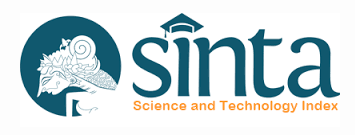PENGARUH MEDIA SOSIAL TERHADAP MENURUNNYA TINGKAT MENONTON MEDIA TELEVISI PADA GENERASI Z DI KOTA SAMARINDA
Abstrak
Social media is an online platform where users can easily engage, share, and create various types of content such as blogs, social networks, wikis, forums, and virtual worlds. The development of the internet has made the use of social media increasingly easy and convenient. In a short period, social media allows users to access various information, interact with others, and obtain entertainment according to their needs. The presence of social media has made society increasingly dependent on these platforms for accessing information and entertainment, even replacing the roles of conventional media such as television, radio, and newspapers. This research aims to determine if there is a significant influence between the use of social media and the decrease in the level of television viewing among Generation Z in Samarinda City. This study aims to investigate the influence of social media on the decrease in television viewing among Generation Z in Samarinda City. The method used is descriptive quantitative research using a questionnaire as a data collection tool. The analysis in this study uses simple linear regression analysis. The research sample was taken using purposive sampling technique by applying the Slovin formula, which resulted in a total of 100 respondents. The research results show that social media has an influence of 26.7% on the decrease in the level of television viewing, while the rest is influenced by other factors not examined in this study. Based on the t-test, the t-value of 5.976 exceeds the t-table value of 1.985, indicating that the alternative hypothesis is accepted, namely that the use of social media has an effect on the decrease in the level of television viewing among Generation Z in Samarinda City.
Once an article was published in the journal, the author(s) are:
granted to the journal right licensed under Creative Commons License Attribution that allows others to share the work with an acknowledgment of the work's authorship. permitted to publish their work online in third parties as it can lead to wider dissemination of the work. continue to be the copyright owner and allow the journal to publish the article with the CC BY license receiving a DOI (Digital Object Identifier) of the work.





